|
John the Baptist paved the way for Jesus. After that, Jesus called the first disciple, Andrew (John 1:40). Through his calling, Andrew is inspired to call his brother Simon (Peter) (1:41-42). And so the “twelve disciples” were chosen by Jesus.
Peter, a leader in the early Jerusalem Church was trained by Jesus, and then according to tradition, he trained and mentored Barnabas in the context of the early church in Jerusalem (Acts 11:22-24). So when the early church looked for a key man with godly character to send to Antioch, they sent Barnabas. It is through him that the early church expands to Antioch where a church is established (strengthened) by Barnabas who is joined by the Apostle Paul from Tarsus (11:25-26). The Antioch Church becomes a launching pad to take the gospel to the world. Starting with John the Baptist and the call of Jesus to the twelve disciples, we will follow the thread of leadership through Peter and Barnabas that connected or held together the expansion of the early church from Jerusalem to the world (see chart below). We will see how leaders, church planters and elders emerged from the church family of God for the next generation. Carefully compare what we see in the biblical example and how we train and select leaders today. How has the church’s failure to recognize and practice the sufficiency and authority of Scripture in training leaders contributed to weakness in the church today? (2 Timothy 3:16-17). Please send your answer to [email protected].
0 Comments
 In the Early Church, leadership training and development was essential to the tremendous progress and impact it had on the world. Therefore, let us travel back and start with John the Baptist who paved the way for Jesus. He sets forth a very important key ingredient that undergirds the type of leadership expressed in the early church which we desperately need today. John’s supra-cultural and timeless leadership principle was that Jesus must always increase and John (we) must always decrease (John 3:30). The context of this verse is very important in order to understanding what John was pointing to. First, John was preaching a baptism of repentance (Matthew 3:2). Second, John refused to be promoted by others or confuse himself with Christ, but was just “the voice of one crying out in the wilderness, ‘Make straight the way of the Lord’” (John 1:23). Third, John makes the analogy between Jesus as a “bridegroom…who has the bride” (the church), and John as “the friend of the bridegroom” (3:29). How then can John say “Therefore this joy of mine is now complete” and how will Jesus increase through John decreasing? Allow me to quote from the Chinese brother, Witness Lee: “By the context of these verses (3:16-21) we may know that all who come to the Lord to be redeemed by Him are the Lord’s bride, and the Lord is the Bridegroom. John the Baptist is not this Bridegroom; he is the friend of the bridegroom. It is the Lord who is the Bridegroom who will have the bride. Following this, the next verse says, “He must increase.” What does this mean? This simply means that Christ will have a bride, and the bride is His increase.” To see Christ increase through His bride made John’s joy complete. The core character of any leader in the church must be that Christ’s life increases in us. Paul put it in these words; “I have been crucified with Christ. It is no longer I who live, but Christ who lives in me” (Galatians 2:20). This is how leadership was prepared for the Early Church and must be so today. There is no other way to have our joy complete! 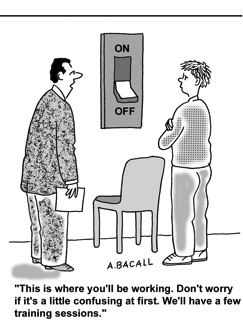 The subject of leadership in the church is one of the most important topics we could address. For the next several weeks, we will look at the Biblical Principles of Leadership Development that is covered in Chapter 4 of the manual, God’s Plan for His Church. If you do not have a manual, please go to our “Training Resources” page and download a copy, or contact us for a hard copy. Obviously some church leaders view the western model of training disciples and leaders superior to how Jesus and the early church trained disciples; otherwise, there would be a strong desire to return to the model Christ and the apostles left for us. Where did today’s training methods originate? Are they biblical, and are they better? When you look at the expansion of the early church and the life of the early disciples and apostles, especially the impact they had on their world, you must conclude we are doing something wrong by our training today. Something is missing in the methods we are using. Those early disciples, full of the Holy Spirit, left all and gave all for their Savior and turned their world upside down for Christ. To understand the leadership deficiency in the church today let’s look at the following chart: Here are two questions you should wrestle with before we get into our study of the Early Church leaders, their character qualities and how God used them.
“Today every Christian organization of a certain size has its rules, regulations and bylaws, BUT we must come back to the Scriptures to see the charter ordained by God.
The spiritual charter of the church is the cross, Christ, the Holy Spirit, the headship of Christ, the Body, a general attitude, and the Word of God. If we are going to practice real church life, we must take all these matters and put them into practice. If we keep these seven items of the spiritual charter of the church, the church will be helped by us. If we are checked by these few items, we will become a positive help to the church. Otherwise, we will be a damage, a hindrance, and even a danger to the church life. May the Lord be merciful to us.” Lee, Witness, Basic Principles of the Practice of the Church Life, Living Stream Ministry, 1999, pages 43, 55.  n our list of seven essential principles for every church, we come to the last, but not the least.
How is this possible? Take a close look at what happened with the church in Jerusalem. God moved persons out of Jerusalem through persecution and they “preach the Lord Jesus…and the hand of the Lord was with them, and a great number who believed turned to the Lord” (Acts 11:19-22). From this movement of the Spirit, the church at Antioch was established. They planted a self-propagating church in Antioch as we see in chapter 13. It was the Holy Spirit who sent out Barnabas and Paul to planting churches in Antioch (Galatia), Iconium, Lystra and Derbe. On Paul’s second missionary journey, one of the churches that he and Silas planted was Thessalonica which became a powerful self-propagating church. Notice Paul’s comment regarding this church: “For not only has the word of the Lord sounded forth from you in Macedonia and Achaia, but your faith in God has gone forth everywhere, so that we need not say anything.” (1 Thessalonians 1:8). To bring these last three principles together, I quote from Roland Allen; “Until we learn that not only self-support in a financial sense, but self-support in a spiritual sense, a sense that implies self-government, must begin from the very beginning, we cannot hope to see that wide propagation of the Gospel which alone could penetrate a continent like Africa, or reach the vast populations of India and China, or cover those wide, sparsely-populated areas where communications are difficult. Could we once persuade ourselves that self-extension, self-support and self-government go hand in hand, and are all equally the rights of converts from the very beginning, we might see such an expansion of Christianity throughout the world as now we little dream of.” The Spontaneous Expansion of the Church and the Causes Which Hinder It, Public Domain, pg. 24. Download Book Free at www.newfoundationsinternational.org Go to the heading, Training Resources and click at bottom of page under additional training material. It is imperative that we rethink our present methods and RETURN to a biblical, Pauline model to ensure that our work is motivated and empowered by the Holy Spirit. Then we will fulfill Jesus’ imperative; “And this gospel of the kingdom will be proclaimed throughout the whole world as a testimony to all nations (ethnos - people groups), and then the end will come.” (Matthew 24:14). 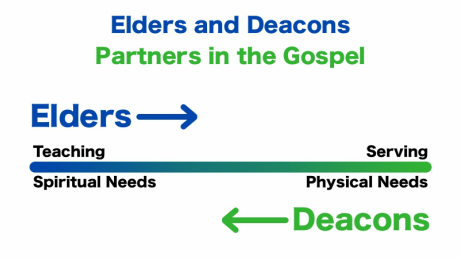 I trust you are seeing a biblical pattern in this list. That is intentional. Points1 through 5 make it natural for the local church to be self-governing. Just as a reminder, here is the list again.
On Paul’s first missionary journey, there were three things he did (Acts 14:22-23):
Have the pastor(s), elders and deacons of your church taken time to examine this biblical model? 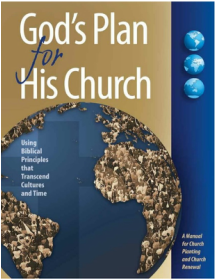 Now we turn to the fifth essential principle.
A current example that the Lord brought to our attention was after the 2008 economic down-turn. In an African country, the local pastor said that after this down-turn, giving and money from America fell off. He said that after what he learned from Paul’s model, it did not matter. He would work and continue doing ministry with what God gave him. The most effective indigenous ministries we have seen are where the local church is totally Self-Sustaining! “Paul does not repeatedly exhort his churches to subscribe money for the propagation of the Faith. He is far more concerned to explain to them what the Faith is, and how they ought to practice it and to keep it.” (Roland Allen, The Spontaneous Expansion of the Church and the Causes Which Hinder It, Public Domain, page. 4). This is the antithesis of what we have learned for hundreds of yours, but it is critical to learn the biblical model. From self-sustaining churches come the self-propagation of the gospel and the planting of other indigenous churches. 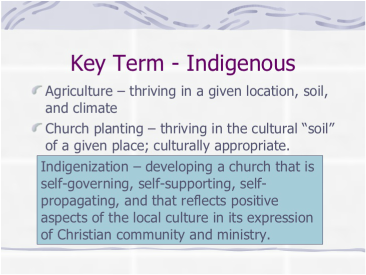 One of the distinctive marks of the Early Church was that they were indigenous to the local native population. As an example, the church in Jerusalem was Jewish by reason of those in it, while the church at Antioch was a Gentile fellowship. Notice how Roland Allen addresses this issue below.
The Spontaneous Expansion of the Church and the Causes Which Hinder It, Public Domain, pg. 1-2. So much of the weakness we see in other countries is through exporting western methods and programs that are not biblically required. This has caused many native people to look at Christianity as a “foreign religion” that must be avoided at all cost. In addition, there has been a tradition in the west of sending missionaries to a foreign field and insisting they stay in that place to make sure the new converts follow our forms rather than letting the Holy Spirit teach them through Scripture. More will be said about this under “Self-Governing Churches’. I trust the point is clear. If we insist on controlling native churches, they will not be indigenous and we are in essence questioning whether the Holy Spirit is able to teach them (See John 14:26). 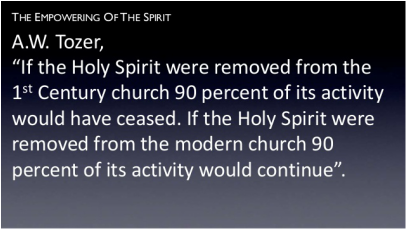 Anyone who reads the Book of Acts can quickly see that our third essential principle was central to the birth and growth of the Early Church.
Roland Allen writes: “The Spirit of Christ is a Spirit who longs for, and strives after, the salvation of the souls of men, and that the Spirit might dwell in them. That Spirit converts the natural instinct into a longing for the conversion of others which is indeed divine in its source and character.” The Spontaneous Expansion of the Church and the Causes Which Hinder It, Public Domain, page 6. There are seven places in Acts that state that the church and believers were filled with the Holy Spirit (Acts 2:4; 4:8, 31; 9:17; 13:9, 52). They knew that NOTHING can be accomplished for the glory of God without the Spirit. Our spiritual growth, maturity, fellowship, preaching, teaching, missions, ministry – literally everything, depends on our lives being filled and empowered with the Holy Spirit. Why then is He ignored in all these areas of life and Christian work? Let us REPENT and RETURN TO THE BIBLICAL PLACE THAT BELONGS TO THE HOLY SPIRIT! Let’s look at the second essential principle that is a must for any church in the list from yesterday.
“The Head of the church is Christ the Lord, and the authority in the church is the headship of Christ. It is clear that in the church there should be an order, but this order comes from the headship of Christ. We must realize, honor and respect the headship of the Lord. If we are not under the headship of the Lord, we can never be right in the order of the church.” Basic Principles of the Practice of the Church Life, Living Stream Ministry, 1999, page34. Paul is just as adamant about this issue; “And He (Christ) is the head of the body, the church. He is the beginning, the firstborn from the dead, that in everything he might be preeminent.” (Colossians 1:18; see also Ephesians 1:22). There cannot be spiritual growth and maturity in the church unless Christ is honored as the Head (Ephesians 4:15-16). If this truth was properly recognized and obeyed in the church, most, if not all the problems, whether personal, marriage, family, or those in the church would be instantly resolved. Christ must be preeminent or first, and supreme in all things and under His headship. |
Archives
June 2024
Link To Our Old Blog:
|

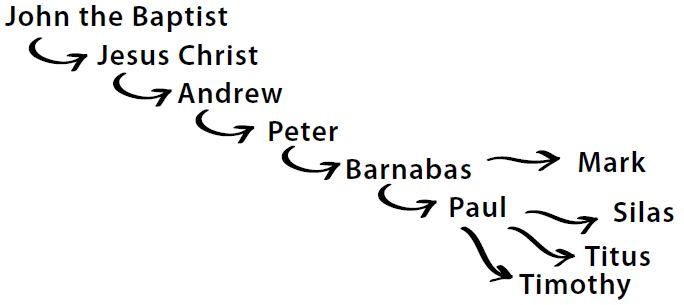
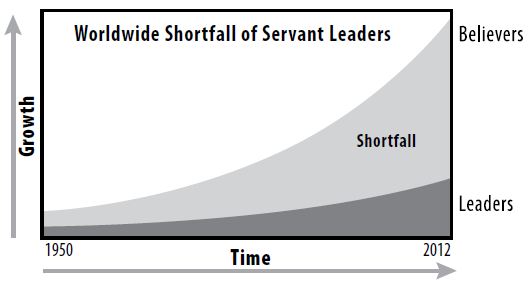

 RSS Feed
RSS Feed